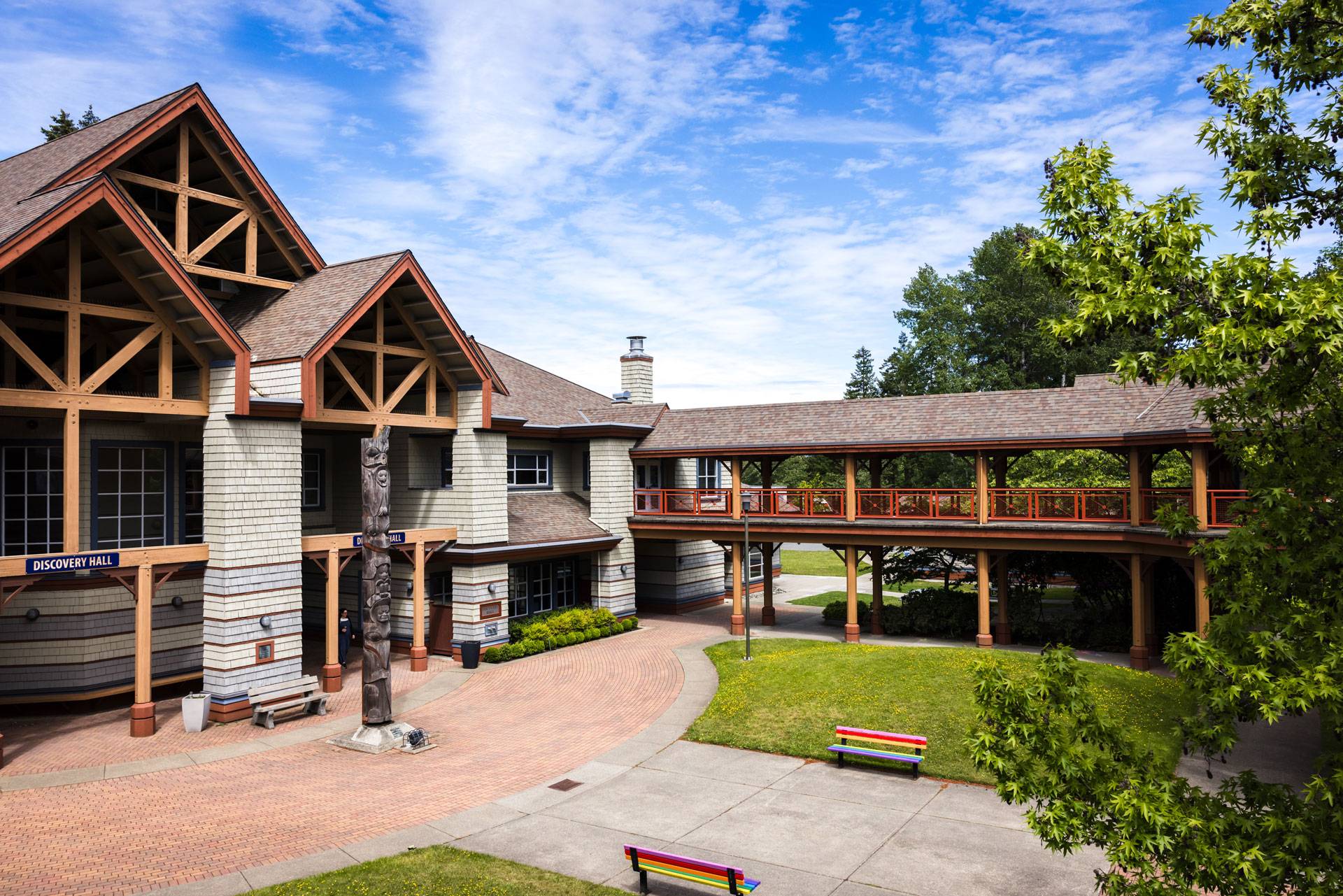For years, those curious about the galaxies and heavens above could drive down West Saanich Road to visit Observatory Hill, home to the Centre of the Universe (CU) and the Dominion Astrophysical Observatory (DAO). While the observatory is still used for scientific research, the Centre of the Universe closed to the public in August 2013 due to National Research Council (NRC) budget cutbacks. However, with support from the community, the Centre is gradually restoring its public programs.
One of those programs is put on this summer by Science Venture, a UVic-based non-profit that encourages hands-on learning for science, technology, engineering, and math (STEM) among Vancouver Island youth. In collaboration with the NRC, they are running two space-themed camps this July and August—spaceTECH and astroLAB—at the Centre of the Universe.
The spaceTECH camp examines the technology that makes space exploration and research possible; from building a robotic “Mars Rover” (with Lego Mindstorms) to studying satellites, spaceships, and rockets. The astroLAB program, on the other hand, delves into the science of stars, planets, and galaxies. It includes building a planetarium and focuses on the physics of astronomy. According to Melisa Yestrau, the director of Science Venture, both camps hope to include a visit and demonstration of the Plaskett telescope in the dome building atop Observatory Hill.
According to Yestrau, MLA Lana Popham organized a community proposal to the NRC and suggested a pilot project for the summer program. With the support of the NRC and the Royal Astronomical Society of Canada (RASC), Science Venture was granted permission to use the CU and observatory facilities for the summer camps. Andrew Weaver, another MLA and a faculty member of UVic’s School of Earth and Ocean Sciences, was an early supporter of the collaboration and put Science Venture and the NRC in contact. Weaver said that his goal while working behind the scenes was to “remove barriers to communication and then [he] let people with the same vision work together.”
Aside from using the Centre for youth camps in the summer, the RASC is now in the process of gaining approval for some Saturday observation nights this July and August. Jim Hesser, strategic adviser to the NRC Herzberg Program, says that while the Centre of the Universe is still not fully open to the public yet, “[the] NRC made it known that it was very interested in working with community groups who would be interested to restore some education and public outreach activities.”
Recently on May 3, the RASC and the Royal B.C. Museum had Astronomy Day, an event with astronomy activities at the museum during the day, and astronomy related talks and programs at the opened CU and observatory at night.
Lauri Roche, former president of the RASC Victoria chapter, is optimistic that they will have several Saturday night viewings later this summer led by RASC members with their personal telescopes set up in the parking lot, and with the observatory being open for tours and viewings.
Hesser says, “My personal hope is that the long-term working group [at the CU] would come up with a vision that will truly re-open the CU to the public, but that isn’t happening this summer [yet].”
For more information on the Royal Astronomical Society of Canada’s Victoria chapter and their upcoming activities, visit their website at victoria.rasc.ca.
Information of Science Venture can be found at scienceventure.ca.






